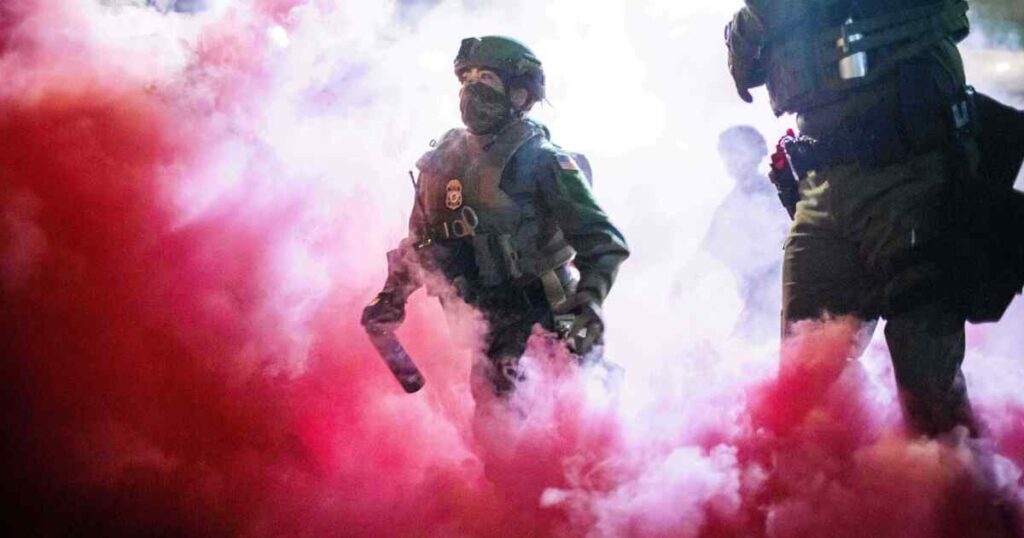The 9th Circuit Court of Appeals handed command of Oregon National Guard troops to the president Monday, further raising the stakes in the ongoing multifront judicial battle over military deployments to cities across the U.S.
A three-judge appellate panel — including two members appointed by Trump during his first term — found that the law “does not limit the facts and circumstances that the President may consider” when deciding whether to dispatch soldiers domestically.
The judges found that when ordering a deployment, “The President has the authority to identify and weigh the relevant facts.”
The ruling was a stark contrast to a lower-court judge’s finding earlier this month.
U.S. District Judge Karin Immergut of Portland previously called the president’s justification for federalizing Oregon troops “simply untethered to the facts” in her Oct. 4 temporary restraining order.
The appellate judges said they were guided by a precedent set in the 9th Circuit this summer, when California tried and failed to wrest back control of federalized soldiers in and around Los Angeles.
Another proceeding in California’s case is scheduled before the appellate court this week and the court’s earlier decision could be reversed. At the same time, an almost identical deployment in Illinois is under review by the Supreme Court.
For now, exactly which troops can deploy in Portland remains bitterly contested in U.S. District court, where Immergut blocked the administration from flooding Portland with Guardsmen from California.
The issue is likely to be decided by Supreme Court later this fall.
The judges who heard the Oregon case outlined the dueling legal theories in their opinions. The two members of the bench who backed Trump’s authority over the troops argued the law is straightforward.
“The President’s decision in this area is absolute,” wrote Judge Ryan D. Nelson, a Trump appointee, in a concurrence arguing that the court had overstepped its bounds in taking the case at all.
“Reasonable minds will disagree about the propriety of the President’s National Guard deployment in Portland,” Nelson wrote. “But federal courts are not the panacea to cure that disagreement—the political process is (at least under current Supreme Court precedent).”
Susan P. Graber, a Clinton appointee, said the appellate court had veered into parody.
“Given Portland protesters’ well-known penchant for wearing chicken suits, inflatable frog costumes, or nothing at all when expressing their disagreement with the methods employed by ICE, observers may be tempted to view the majority’s ruling, which accepts the government’s characterization of Portland as a war zone, as merely absurd,” she wrote in her stinging dissent.
But the stakes of sending armed soldiers to American cities based on little more than “propaganda” are far higher, she wrote.
“I urge my colleagues on this court to act swiftly to vacate the majority’s order before the illegal deployment of troops under false pretenses can occur,” Graber wrote. “Above all, I ask those who are watching this case unfold to retain faith in our judicial system for just a little longer.”
